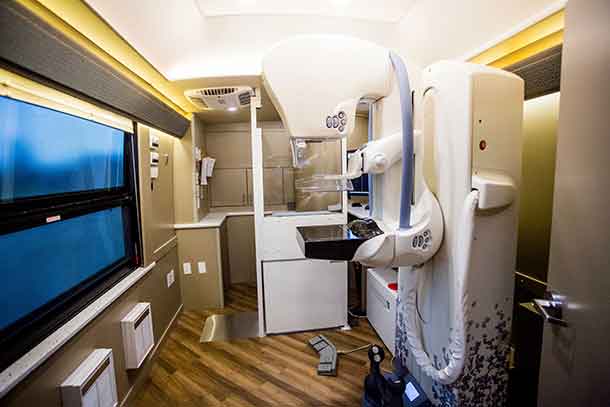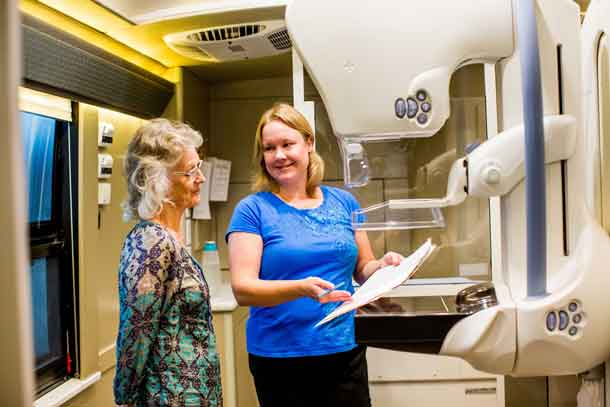

By Dr. Nicole Zavagnin, Regional Primary Care Lead
THUNDER BAY – October is Breast Cancer Awareness Month and Dr. Nicole Zavagnin is encouraging women to get screened for breast cancer. In this two-part article series, Dr. Zavagnin, Regional Primary Care Lead with Cancer Care Ontario and Prevention and Screening Services at Thunder Bay Regional Health Sciences Centre, answers some of the most frequently asked questions about breast cancer prevention, screening and risk.
- If I have a family history of breast cancer, what does that mean for my health? (i.e. My mother, grandmother or an aunt had a diagnosis of breast cancer.)
Sometimes it is not clear if the pattern of cancer in a family is due to chance, lifestyle factors, or genes that are being passed from generation to generation. Fortunately, less than 1% of women in the general population are estimated to be at high risk for breast cancer. It is important to discuss your family history with your health care provider so that they may help you to determine if your family history may put you at higher risk of developing breast cancer.
Women considered to be ‘high risk’ for breast cancer have:
- a genetic mutation that puts them at high risk for breast cancer;
- a parent, sibling or child who has a genetic mutation that puts them at high risk for breast cancer;
- a family history that indicates a lifetime risk of breast cancer that is greater than or equal to 25%, which is confirmed through genetic assessment; or
- received radiation therapy to the chest before 30 years of age as treatment for another cancer or condition (i.e. Hodgkin’s disease).
- Is genetic testing appropriate for me?
The need and eligibility for genetic testing should be discussed with a health care provider.
Genetic screening may be appropriate for you if:
- you are diagnosed with breast cancer early in life (before age 35);
- you have a strong family history of breast and/or ovarian or related cancers. The more relatives with a history of cancer and the younger the age at diagnosis, the greater the likelihood that a genetic mutation may be present;
- you have a family history of male breast cancer; or
- if you are of Ashkenazi Jewish descent.
- Can I get screened earlier (<50 years) for breast cancer?
If you are found to be high risk, then screening is usually offered beginning at age 30. If you are at average risk for breast cancer, routine screening begins at age 50. However, if you have concerns related to breast changes, this should be addressed by a health care provider.
It is important for all women to be breast aware, regardless of their age or risk factors. This means knowing how your breasts look and feel normally so that you will know if there are any changes. Examples of concerning breast changes include: lumps or dimpling, changes in the nipple (direction or turning in), fluid leakage from the nipple, skin changes or redness that do not go away, and any other breast changes. In most cases, changes are not signs of cancer, but it is important to have them checked by your primary care provider to be sure.
Maintaining a healthy lifestyle may help you reduce your risk of breast cancer:
- Maintain a healthy body weight, especially after menopause.
- Be physically active.
• Have no more than one alcoholic drink per day, if at all.
• Be a non-smoker and avoid second-hand smoke. - Limit your time on hormone replacement therapy (if used), and
- Talk to your provider about appropriate breast screening.
You can find out more about your cancer risk by completing a simple, online risk assessment called ‘My CancerIQ’ at www.mycanceriq.ca.
Book your breast cancer screening appointment today by calling (807) 684-7777 or 1-800-461-7031. Find our more information about breast cancer screening by visiting http://bit.ly/justbookit.







